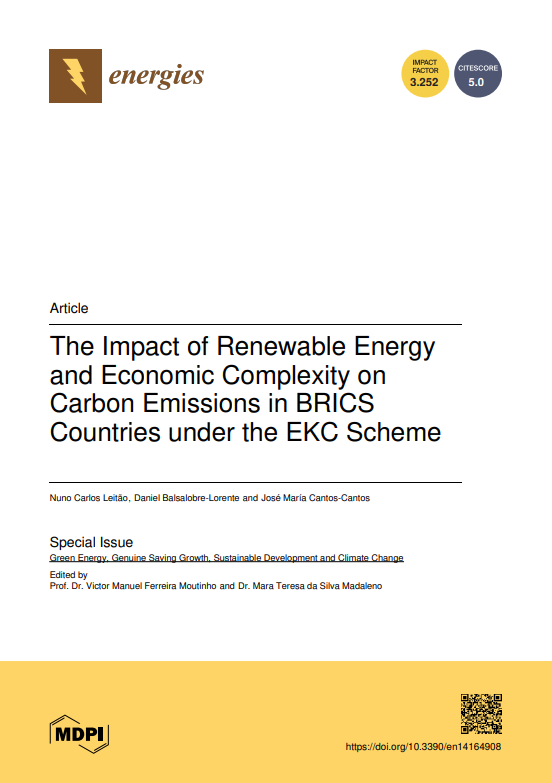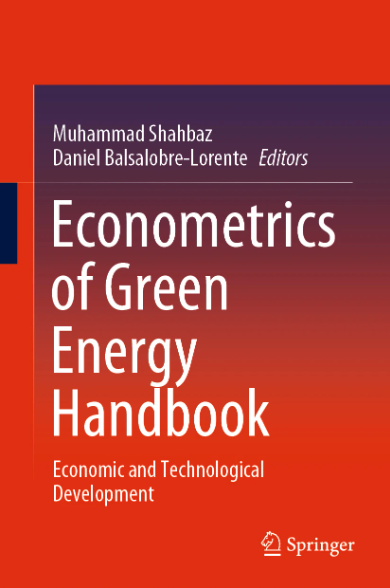Climate and Environment

The Impact of Renewable Energy and Economic Complexity on Carbon Emissions in BRICS Countries under the EKC Scheme
Abstract:
Economic complexity makes it possible to assess the development of the countries, the relations of innovation, and the differentiation of products. The Impact of Renewable Energy and Economic Complexity on Carbon Emissions in BRICS Countries under the EKC Scheme considers the links between the hypotheses of the Kuznets environmental curve and economic complexity using panel data for the group of BRICS countries (Brazil, Russia, India, China, and South Africa) from 1990 to 2015. As an econometric strategy, this study considered the panel fully modified least squares (FMOLS), panel dynamic least squares (DOLS), fixed effects (FE), and Panel Quantile Regression. The empirical results showed that economic complexity, income per capita, renewable energy, and carbon dioxide emissions are integrated with the first difference when applying the unit root test. The arguments of Pedroni and Kao cointegration tests were also used. According to these results, the variables used in this research are cointegrated in the long run. The results validated the arguments of the EKC hypothesis, i.e., the income per capita and squared income per capita are positively and negatively correlated with CO2 emissions. Moreover, economic complexity and renewable energy aim to improve environmental damage and climate change.
Quotation:
Leitão, N.C., Balsalobre-Lorente, D., Cantos-Cantos, J.M. The Impact of Renewable Energy and Economic Complexity on Carbon Emissions in BRICS Countries under the EKC Scheme. Energies 2021, 14, 4908. https://doi.org/10.3390/en14164908

The Causality between Energy Consumption, Urban Population, Carbon Dioxide Emissions and Economic Growth.
Abstract:
This article assesses the relationship between electricity consumption and urbanisation by comparing the econometric results of distributed autoregressive lag (ARDL) and vector autoregressive lag (VAR) for the period 1960-2015. Granger causality is also applied to the Portuguese economy. In this study, we use some hypotheses that describe the link between electricity consumption, urban population, carbon dioxide emissions, and economic growth. The motivation of this research focuses on the relationship between electricity consumption (energy consumption) and urban population, supported by the theoretical and empirical contributions of energy and urban economics. The empirical results show that electricity consumption exhibits causality with economic growth, urban population, carbon dioxide emissions, and international trade. This research also proves that there is cointegration among all variables in the long run. Authored by Nuno Carlos Leitão e Daniel Balslobre-Lorente, this chapter (nº5) is part of the book “Econometrics of Green Energy Handbook”, which shares essential insights into the dynamic between energy innovations, environmental guidelines, and economic development, demonstrates how globalization has led to the development of greener energy technologies, paints a global picture using case studies on energy innovation in numerous countries and discusses both technological and policy aspects of green energy development.
Quotation:
Leitão, N.C. & Lorente, D. B. (2020): The Causality between Energy Consumption, Urban Population, Carbon Dioxide Emissions and Economic Growth. Springer Handbook Green Energy Series: Econometry of Green Energy- Economy and Technological and Development. Publisher: Springer.





